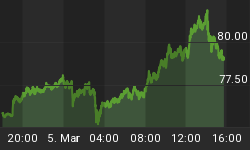A dynamic market environment with the potential for big gains is only half of the story. Getting into the market and protecting your capital if you are wrong is the rest of the story.
Looking at a weekly chart of the S&P Depository Receipts (see figure 1), we note the positive divergence bars, which are the pink labeled price bars inside the gray ovals. The divergence we note is between the value charts oscillator (which measures price and is moving higher) and price itself, which is moving lower. I write a lot about negative divergence bars, and positive divergence bars imply the same price dynamics. The presence of a positive divergence bar implies slowing downside momentum. Positive divergence bars generally appear at market bottoms, but their presence does not guarantee a market bottom. More importantly, the highs and lows of the divergence bar tend to serve as a range for prices. A break above the highs implies higher prices - as in the bottom is in. A break below the lows often leads to an acceleration of prices lower as traders who are long in anticipation of a bounce must unwind their losing positions. (Of note, these were the same price dynamics occurring in the Dollar Index in 2009 and that I wrote about extensively.)
Figure 1. SPY/ weekly
So the high of the current positive divergence bar for the SPY is 110.8; a break above these levels is bullish. The low is 104.38; a weekly close below these levels is bearish, and as I have been stating, this is a failed signal especially within the context of bearish sentiment (i.e., bull signal). Generally such price failures imply the beginning of a down trend.
So what would make me throw in the towel? A weekly close below 104.38 on the SPY.
















